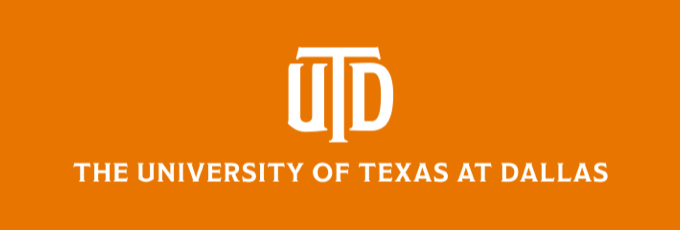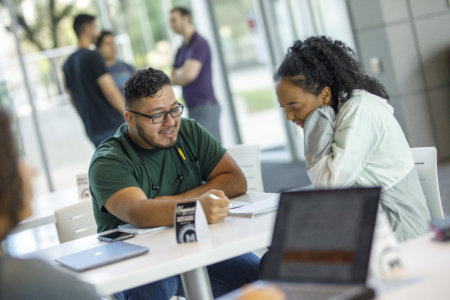Exposure to top-notch guidance inspired Yemen-born, Wyoming-raised Austin Mordahl to merge his educational and computer science passions with a PhD. He knew the right place to do it was with his alma mater, the University of Texas at Dallas (UT Dallas). Its Department of Computer Science had the programme that would enable him to learn the fundamentals of imparting university-level knowledge while conducting world-changing research.
Having already completed his undergraduate studies with them, racking up very little student debt in the process but many lifelong friends, he knew it was the best place to pursue his PhD.
Mordahl’s decision proved fruitful. “Much of my PhD in Computer Science programme has been experiential, in that it is preparing me for my responsibilities as a future tenure-track faculty member,” he shares. In state-of-the-art classrooms, he picks up the traits he hopes to one day use as an educator himself. He especially commends his supervisor Dr. Shiyi Wei for providing unwavering support.
“Classes that stand out as particularly high quality were my operating systems concepts classes taught by Dr. Ravi Prakash, artificial intelligence by Dr. Vibhav Gogate, and a special topics class taught by Dr. Wei concerning programme analysis,” he enthuses.
Another day, another discovery
In fully equipped laboratories, Mordahl applies his knowledge through research. His most recent study focuses on everything Dr. Wei has taught him, making configurable programme analysis software more manageable and reliable. He plans to continue building on his findings for as long as he can. With UT Dallas, he’s confident he’ll develop the skills and discipline needed to be both a competent researcher and an effective educator.
Across its offerings, the Computer Science Department has always placed a strong emphasis on research. Its research faculty of 53 are engaged in the cutting-edge areas of Artificial Intelligence, Machine Learning, Cyber Security, Data Science, Networks, Systems, Theory, and Software Engineering.

According to data from csrankings.org, UT Dallas research in Software Engineering is ranked 5th nationally. Source: UT Dallas
You’ll find them in institutes and centres such as Cyber Security Research and Education Institute; Human Language Technology Research Institute; Institute for Data Analytics; Net-Centric Software Centre; Centre for Software Testing; iPerform: Centre for Assistive Technology; Centre for CS Education and Outreach; The Dallas Institute for Interactive and Spatial Computing (UT-DIISC); The Centre for Machine Learning; or The Centre for Applied AI and Machine Learning.
The discoveries made in these spaces have put the department on the map. According to data from csrankings.org, UT Dallas’s PhD in Computer Science and Software Engineering consistently rank in the top 10 — in areas such as Software Engineering, AI and Natural Language Processing — in the last 10 years combined.
Witnessing excellence has led many students to follow suit in various ways. For starters, they work alongside their mentors to reach milestones previously unheard of. They’ve seen artificial intelligence used to forecast energy supply and demand and InfoVision leveraged to develop a drone-supported inventory system.
Inspired, they go on to achieve accolades of their own. PhD in Software Engineering graduate Dr. Oscar Chaparro was named one of two students to earn last year’s David Daniel Thesis Award. PhD in Computer Science graduate Dr. Vipin Singh Sehrawat joined Seagate as a lead staff engineer for cryptography and product security. Dr. Ashkan Yousefpour, another PhD in Computer Science graduate, first landed the position of visiting researcher at the University of California, Berkeley, before advancing to Facebook AI as a research scientist.
Other PhD graduates have gone on to find jobs in top-tier universities, research facilities, government agencies and prestigious companies such as Adobe, Amazon, Apple, Cisco, Facebook, Google, Microsoft and Bank of America, among others.

UT Dallas is strategically located in the Telecom Corridor — a technology business centre in Richardson, Texas. Source: UT Dallas
Affordable education in an opportunity-filled location
By choosing either a PhD in Computer Science or a PhD in Software Engineering, candidates join the running for a graduate assistantship. These come with a full tuition waiver and a monthly stipend of US$1,950, which will eventually increase to US$2,250. The department offers various other forms of scholarships and financial aid too.
The best part? Anyone who chooses the UT Dallas Computer Science Department will never be short of excitement, camaraderie and opportunity. The university is strategically located in the Telecom Corridor — a technology business centre in Richardson, Texas — where thousands of high-tech companies are based. Dallas-Fort Worth is also home to 24 Fortune 500 companies — all of whom have gladly hired UT Dallas graduates.
Follow the University of Texas at Dallas on Facebook, Twitter, Instagram, Flickr, and YouTube













